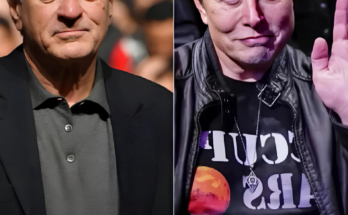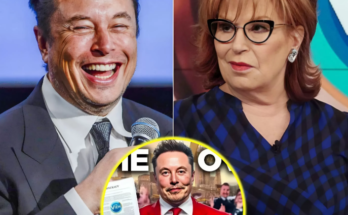
 JK Rowling, author of the Harry Potter series, has been vocal about her views on gender identity and women’s rights. She has frequently argued that allowing transgender women to compete in female categories undermines the integrity of women’s sports. Rowling believes that biological differences—such as muscle mass, strength, and stamina—give transgender women an inherent advantage, even after transitioning.
JK Rowling, author of the Harry Potter series, has been vocal about her views on gender identity and women’s rights. She has frequently argued that allowing transgender women to compete in female categories undermines the integrity of women’s sports. Rowling believes that biological differences—such as muscle mass, strength, and stamina—give transgender women an inherent advantage, even after transitioning.
Rowling has consistently advocated for policies that ensure the protection of female athletes and the integrity of women’s sports. In her response to the situation involving Valentina Petrillo, Rowling stated, “Women’s sports were created to give women a level playing field, and allowing biological males to compete threatens to erase those hard-won victories for women.”
With Musk now joining Rowling’s side, their collective voices are bringing more attention to the issue on the global stage.
At the center of this debate is Valentina Petrillo, a transgender athlete who transitioned from male to female in her 40s and began competing in women’s track events. Petrillo, who is visually impaired, has competed in numerous international events, including the Paralympics, sparking heated discussions about the fairness of transgender athletes participating in women’s sports categories.
Critics, including Musk and Rowling, argue that even after hormone therapy and transitioning, transgender women retain certain physical advantages that can make competition unfair. These critics believe that separate categories or new rules should be introduced to ensure the integrity of women’s sports.
Petrillo, on the other hand, has expressed the importance of inclusion and the need for society to embrace transgender athletes. In a previous interview, Petrillo said, “Competing in sports is part of who I am. Everyone deserves the right to compete and be themselves. Excluding transgender women from sports is harmful and unnecessary.”

As this debate grows louder, more pressure is being placed on the International Olympic Committee (IOC) and other sporting organizations to address the issue. Currently, the IOC allows transgender women to compete in women’s events if they meet specific hormone-level requirements. However, critics like Musk and Rowling argue that this is insufficient, as biological advantages remain even after hormone treatment.
Musk’s and Rowling’s remarks have sparked renewed calls for the IOC to revisit its guidelines and potentially implement new rules to exclude transgender women from competing in female categories altogether. Some have suggested the creation of a separate category for transgender athletes, while others advocate for stricter guidelines to protect the integrity of women’s sports.
As expected, the involvement of high-profile figures like Musk and Rowling has drawn polarized reactions. Supporters of transgender inclusion in sports argue that transgender athletes should not be excluded based on their identity and that inclusion is a matter of equality and human rights. They see Musk and Rowling’s stance as discriminatory and harmful to transgender individuals
On the other hand, many athletes, feminists, and public figures have rallied behind Musk and Rowling, claiming that the current policies are indeed unfair to biological women and threaten to undermine decades of progress in women’s sports.
The debate over transgender athletes in women’s sports is far from settled, and with influential figures like Elon Musk and JK Rowling weighing in, the conversation is gaining even more momentum. As the International Olympic Committee faces growing pressure, the future of sports policies may soon change. Whether it leads to the exclusion of transgender women from women’s events or the creation of new categories remains to be seen, but one thing is clear: the discussion surrounding fairness and inclusion in sports is only heating up.



